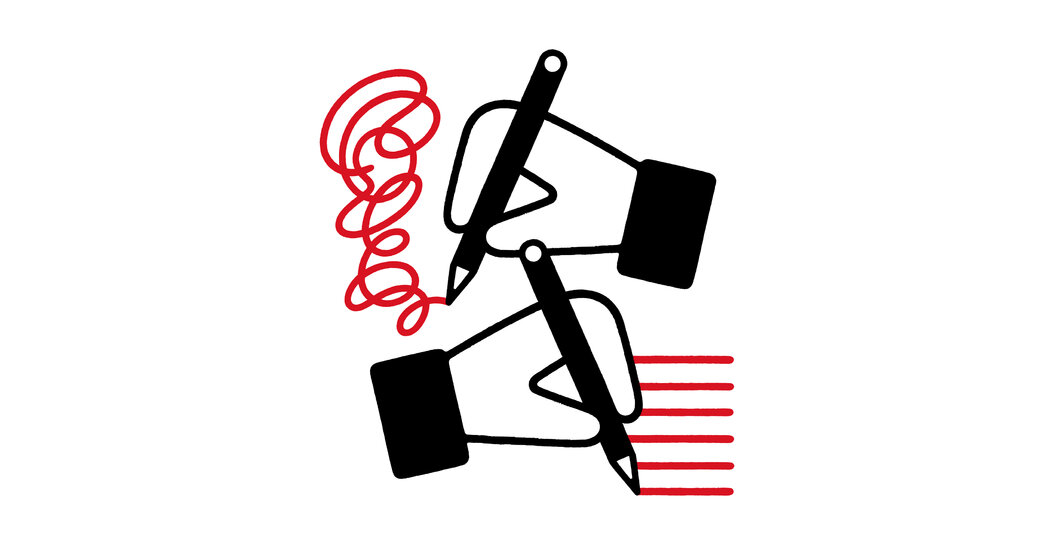My best friend and confidante of nine years has simply vanished from my life. Last year, she stood by my side as I married the love of my life. She was listed as my sister in spirit in the wedding program, and that joyful day brought us both to tears. Since then, we have had exactly one dinner together, during which she told me she had started seeing someone on the West Coast. I have reached out to her many times since then, sending love on her birthday and over the holidays, but she hasn’t responded. I know that she continues to watch my busy life on social media, but I am tortured by the loss of my dear friend. I feel sad and very confused. What should I do?
BEST FRIEND
Occasionally, when we upset people inadvertently or they decide they need a break from their relationship with us, they aren’t forthcoming about their feelings. (It would be infinitely better if they were, but conflict is hard for some people.) In these situations, sending good wishes on birthdays and holidays — even repeatedly — is insufficient to get to the root of the problem. We have to be more direct: “I miss you! Do we have an issue to discuss?”
I certainly don’t blame you for the rift with your friend, and I sympathize with your strong emotions about it. But I would caution you to tamp down the drama when you speak to your friend about your relationship. Focus less on expressing your feelings and more on listening to her perspective. It may make it easier for her to speak honestly and productively with you.
Now, I am not going to speculate about the role of your recent marriage or your friend’s new relationship in the cooling of your friendship, and I encourage you to keep an open mind, too. The best we can do in situations like these is approach our friends with humility and patience as we ask for clarity. This is the only way I know to get important relationships back on track.
Count Us In (Until Further Notice)
My wife and I accepted an invitation to our neighbors’ wedding that is taking place in a couple of weeks. They are kind people, and we like them very much. The issue: Our daughter’s seventh birthday is the day after the wedding, and we are now thinking of spending a long weekend at the shore to celebrate it. Can we bail on the wedding? We would rather spend the whole weekend with our children than an evening at the wedding without them.
WEDDING GUEST
I am no stranger to the experience of accepting an invitation only to wish I hadn’t as the appointed day approaches. Presumably, though, you knew it was your daughter’s birthday when you accepted the wedding invitation. And by now, the bridal couple has probably delivered the final (and nonrefundable) number of guests to their caterer.
Unless there are unusual circumstances here — an extremely casual picnic wedding, for instance — or a serious and unavoidable conflict, honor your commitment and go to the wedding. Accepting an invitation is a promise we make to our hosts, not an option to be weighed at a later date.
Reply ‘STOP’ to Unsubscribe
A friend lost his father to cancer six years ago. Since then, he has organized an annual charity golf event to raise money and awareness for the illness. Every year, he sends multiple fund-raising emails, and I have supported the event in the past. This year, though, I am facing unexpected financial strain and have decided not to make charitable donations. Still, my friend singled me out in a group text urging me to contribute. I know this cause means a lot to him, but I’m feeling pressured and uncomfortable. Advice?
FRIEND
I admire your continued empathy for your friend: Major losses can sometimes make us single-minded and insensitive to others — as your friend has been to you. But your finances are none of his business. So, you have a decision to make: You may ignore his repeated fund-raising appeals, or you may tell him directly that you are not able to donate this year and he should stop pressing you. Personally, I would cloak any admonition with praise for his good works. It will have a softening effect, and your overzealous friend probably means well.
I Imagine You Were Tallying His ‘Likes’ as Well?
The president of my religious institution (not its spiritual head) is a fine leader and a rotten speaker. At meetings he runs, I am driven crazy by the number of phrases like “you know” and “kind of” that litter his speech: “I will kind of pass the microphone to those who wish to speak,” for instance. I think he would be shocked if he heard a recording of himself. May I say something to him?
LISTENER
Putting aside the seeming absence of any close personal or professional relationship between you and this man — which would be my barometer for speaking up — I would make an additional point: You seem less motivated by helping him than by expressing your annoyance. For me, that is a clear call for silence. I urge you to focus on his fine leadership, instead.
For help with your awkward situation, send a question to SocialQ@nytimes.com, Philip Galanes on Facebook or @SocialQPhilip on X.











